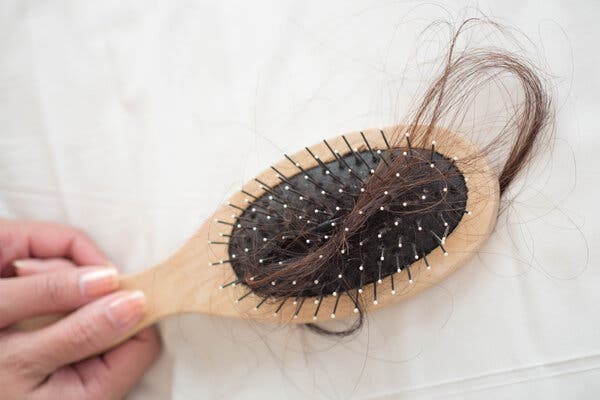
The Emotional Impact of Hair Loss and Why It Matters
Hair loss in women can be a deeply distressing experience, impacting not only physical appearance but also emotional well-being and overall quality of life. Whether due to genetic predisposition, hormonal changes, medical conditions, or aging, understanding the root causes and available treatments is crucial for those affected.
What is Hair Loss and Why It Matters
Hair loss, medically termed as alopecia, refers to the partial or complete absence of hair from areas where it normally grows. While it may not pose a direct threat to physical health, its psychological effects can be profound, affecting self-esteem, social interactions, and mental health.
The Emotional Impact of Hair Loss
For many women, losing hair can lead to feelings of insecurity and loss of confidence. It can alter how they perceive themselves and how others perceive them, influencing daily interactions and activities.
Causes of Hair Loss in Women
Genetic Factors
Genetics play a significant role in hair loss, with conditions such as female pattern baldness being hereditary. Women with a family history of hair thinning or baldness are more likely to experience similar issues.
Hormonal Changes
Fluctuations in hormones, particularly during pregnancy, childbirth, menopause, or thyroid disorders, can disrupt the natural hair growth cycle, leading to temporary or prolonged hair loss.
Medical Conditions
Certain medical conditions like autoimmune diseases (e.g., alopecia areata), scalp infections, and chronic illnesses (e.g., lupus) can trigger hair loss as a secondary symptom of the underlying health issue.
Aging
As women age, their hair follicles can become less active, resulting in thinner, more brittle hair that is prone to falling out or breaking.
Types of Hair Loss
Anagen Effluvium
This type of hair loss occurs during the active growth phase of hair follicles. It is commonly associated with chemotherapy or radiation treatments for cancer.
Telogen Effluvium
Telogen effluvium involves excessive shedding of hair during the resting phase of the hair growth cycle. It can be triggered by stress, illness, surgery, or hormonal changes.
Female Pattern Alopecia
Also known as androgenetic alopecia, this is the most common type of hair loss in women. It typically causes thinning of hair on the crown and frontal areas of the scalp.
Symptoms of Hair Loss
General Thinning
Gradual thinning of hair, especially on the top of the head, is a common early sign of hair loss in women.
Chunks of Hair Falling Out
Sudden and noticeable clumps of hair falling out, often while brushing or washing, can indicate more severe hair loss.
Complete Loss or Patchy Spots
In some cases, hair loss may lead to complete baldness in specific areas or irregular patches of hair loss across the scalp.
Stages of Hair Growth
Understanding the natural hair growth cycle can provide insight into why hair loss occurs and how it progresses.
Anagen (Growth)
During the anagen phase, hair actively grows from the follicle. This phase can last from two to seven years.
Catagen (Transition)
The catagen phase is a short transitional period lasting about two weeks. Hair growth slows down, and the hair follicle shrinks.
Telogen (Shedding)
In the telogen phase, hair rests for about two to three months before falling out and being replaced by new hair during the next anagen phase.
Contributing Factors to Hair Loss
Stress
High stress levels can disrupt the hair growth cycle, leading to temporary hair shedding known as telogen effluvium.
Medications
Certain medications, such as chemotherapy drugs, blood thinners, and antidepressants, can cause hair loss as a side effect.
Health Conditions
Chronic illnesses like diabetes, lupus, and iron deficiency anemia can contribute to hair loss by affecting overall health and disrupting normal bodily functions.
Treatment Options
Addressing hair loss involves identifying and treating the underlying cause, adopting lifestyle changes, and exploring various treatment options.
Addressing Underlying Issues
Treating underlying medical conditions, adjusting medications, or managing stress can help reduce or halt hair loss.
Dietary Changes
Eating a balanced diet rich in vitamins, minerals, and proteins can promote healthy hair growth and minimize hair loss.
Using Wigs for Cosmetic Coverage
Wigs offer a practical solution for women experiencing significant hair loss, providing natural-looking coverage that restores confidence and enhances appearance.
MellowDiamond: Innovating Natural-Looking Wigs

MellowDiamond stands out in the world of hair fashion with its innovative approach to creating natural-looking wigs that cater specifically to women experiencing hair loss.
Natural-Looking Designs
Each wig from MellowDiamond is meticulously designed to mimic the look and feel of natural hair, ensuring a seamless blend and comfortable wear.
Quality Materials
Only the highest quality materials are used to craft MellowDiamond wigs, ensuring durability, comfort, and a realistic appearance.
Conclusion
Hair loss in women is a complex and emotionally challenging condition that requires understanding and compassionate support. By exploring its causes, symptoms, and treatment options, women can regain confidence and take proactive steps towards managing hair loss effectively. MellowDiamond's commitment to innovation in natural-looking wigs offers a ray of hope and empowerment to those navigating this journey.
FAQS
How do I know if my hair loss is normal or something to be concerned about?
Excessive shedding, noticeable thinning, or bald patches suggest you should consult a healthcare professional.
Can stress really cause hair loss, and how can I manage it?
Yes, stress disrupts the hair growth cycle. Managing stress through relaxation, exercise, sleep, and support can help.
How can I support a friend or loved one experiencing hair loss emotionally?
Offer empathy, listen without judgment, help research treatments, and accompany them to appointments for support.


